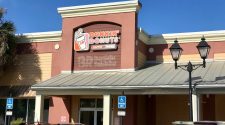I will never forget the first time I was able to surf the Internet with a high-speed T-1 line in the mid-1990s. The aha insight for me was that, ultimately, everything that existed in the physical world would have to be designed and invented for the online world.
When I first discovered and then ordered from Amazon, I thought, well, books are covered, now the rest of products we buy will come online. At that time, it was not apparent to users that Amazon would step into that void and become the online retail outlet for wide selection, great customer support and, of course, rapid shipping.
Gradually, in the 25 years since that epiphany, more of how we buy, how we bank, how are entertained, how we communicate, how we create community has been moving on-line. Now with COVID-19 we have moved — many of us — all our life activities other than going to the grocery store or pharmacy to the online world.
The implications of this in our time of pandemic, both short- and long-term, could well be transformational. There might well be a pre-COVID-19 and a post-COVID-19 view of on-line life
The Two Realities
Since 2008 I have spoken about how those of us alive in the 21st century are the first iteration of humanity to have to manage two simultaneous realities: the physical reality and the screen reality. The physical reality is based on atoms and the screen reality is based upon digits. This means that the screen reality morphs more quickly than the physical reality, and often the future shows up first on the screen reality.
In 2010 I started to forecast a huge collapse of physical retail in the U.S. for the coming decade and that is exactly what happened. Why? Amazon.com. That was followed by Airbnb and Uber, both companies that have changed industries, and done so without owning hotel rooms or cars. The Internet basically disintermediated much of the business to consumer relationships. Stock brokerages, airline tickets, travel bookings, and just about anything, including all aspects of clothing and, yes, even automobiles, can be purchased on-line.
Think back say 10 years ago and look at your habits, devices and how you bought things. How much more of your household transactions are online than at the beginning of the last decade? How much more reliant are you on your handheld device? It was almost unheard of in retirement homes 10 years ago to see residents texting. Now many of them do.
Entertainment
Around the same time as that insight about reality being replicated in cyberspace, Blockbuster went from tapes to DVDs to out of business. No surprise when Netflix went from DVDs in the mail to online.
10 years ago, I couldn’t have imagined how much TV and movies I would watch on my large screen iPhone 8+. I have 110 gigabytes of music, 4 gigabytes of video and 4 gigabytes of books, printed and audio — on the phone! All that stuff would have taken a large room full of shelves, now all of it is in my hand. Of course, in addition to that, I get some 300 emails a day, a lot of which are newsletters, curation emails in a variety of topics, and of course several digital versions of newspapers and magazines
COVID-19
So I look back to that aha moment 25 years ago and realize that the vision first seen then has largely come true; much of the 20th century reality world is now on-line, in addition to endless amounts of digital-only 21st century-type content.
COVID-19 is the accelerated completion of this 25-year old vision. Millions of us now Zoom and FaceTime far more than before. Streaming video services and safe, at-home cooking will, for some people, become a much more acceptable combo than going out to dinner and a crowded movie. This time of pandemic is an accelerant to the new idea of being able to live, work, socialize, buy, and be entertained, all in the screen reality.
It is technology that is saving us, that is connecting us, that is keeping a sense of community. We are all making a technological Declaration of Interdependence.
Necessity is the mother of invention and the necessity of self-quarantine will create an acceleration of living life on-line. How we permanently alter our behavior, purchasing, socializing and information consumption and for how long, are the questions for the post-COVID-19 world.
It will be much more of a technological-based society and culture that we could ever have imagined 10 or 20 years ago.
The Future is Here
It was such a pleasure to meet many of you readers at both of The Sarasota Institute’s two symposiums in January and February. Thanks to all of you who came up to introduce yourselves as readers of this column. The goal is to make this bi-weekly column a stickier community than is usual with newspaper columns. All of you who read this column are a bit more curious about our collective future than readers of other columns elsewhere. Thank you for the wind in my sails!
NOW, an unfortunate announcement. The Sarasota Institute A 21st Century Think Tank is canceling our 4/25 symposium entitled “The Future of Democracy and Capitalism. The month-long ‘stay in place’ through the end of April seals that situation. The two canceled symposiums will be rescheduled to the second half of the fourth quarter. I will let you know right here in fall columns
Sarasota resident David Houle is a globally recognized futurist. He has given speeches on six continents, written seven books and is futurist in residence at the Ringling College of Art + Design. His website is davidhoule.com. Email him at [email protected].















